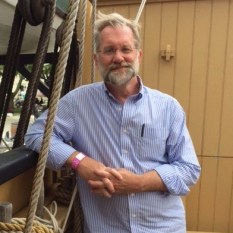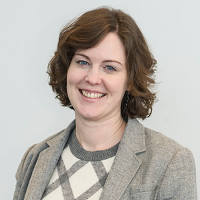“In addition to finding the things I wanted to do or didn’t want to do [for a career], there were parts of being an academic that I was unwilling to give up, and those were just as important.” ~ Dr. Stephanie Gamble, Librarian for History & Anthropology, Sheridan Libraries, Johns Hopkins University.
 Today, Katy talks to Dr. Stephanie Gamble, Librarian for History and Anthropology in the Sheridan Libraries at Johns Hopkins University. Steph explains the wide range of responsibilities she undertakes as a librarian supporting the studies and efforts of both students and faculty. She also offers some tips for turning your CV into a resume . . . or, what she likes to call a “CV-ume.” Continue reading
Today, Katy talks to Dr. Stephanie Gamble, Librarian for History and Anthropology in the Sheridan Libraries at Johns Hopkins University. Steph explains the wide range of responsibilities she undertakes as a librarian supporting the studies and efforts of both students and faculty. She also offers some tips for turning your CV into a resume . . . or, what she likes to call a “CV-ume.” Continue reading
 Welcome back to “Where Historians Work: The View from Early America!” This week Katy chats with Dr. Alea Henle, Head of Public Services Librarian at the J. Cloyd Miller Library at Western New Mexico University. The pair discuss the importance of “knowing your audience” as a historian and “self-knowledge” when it comes to thinking about next steps for a career.
Welcome back to “Where Historians Work: The View from Early America!” This week Katy chats with Dr. Alea Henle, Head of Public Services Librarian at the J. Cloyd Miller Library at Western New Mexico University. The pair discuss the importance of “knowing your audience” as a historian and “self-knowledge” when it comes to thinking about next steps for a career.  Welcome back to the latest installment of “Where Historians Work: The View from Early America.” Today, we venture westward to California to feature a Q&A with Dr. Anne Petersen, the Executive Director of the
Welcome back to the latest installment of “Where Historians Work: The View from Early America.” Today, we venture westward to California to feature a Q&A with Dr. Anne Petersen, the Executive Director of the  Good morning, Junto readers! As we head into July 4th weekend, what better city to visit than Philadelphia? Today, we discuss the exciting intellectual opportunities that accompany the curation of printed collections, with Dr. David Gary, Curator of Printed Materials at the American Philosophical Society.
Good morning, Junto readers! As we head into July 4th weekend, what better city to visit than Philadelphia? Today, we discuss the exciting intellectual opportunities that accompany the curation of printed collections, with Dr. David Gary, Curator of Printed Materials at the American Philosophical Society. For today’s “Where Historians Work: The View from Early America,” Katy chats with Dr. Margaret Bendroth, the Executive Director of the Congregational Library & Archives in Boston, Massachusetts. They discuss the importance of story telling and having an “entrepreneurial” frame of mind, when it comes to a vibrant career in history.
For today’s “Where Historians Work: The View from Early America,” Katy chats with Dr. Margaret Bendroth, the Executive Director of the Congregational Library & Archives in Boston, Massachusetts. They discuss the importance of story telling and having an “entrepreneurial” frame of mind, when it comes to a vibrant career in history. After a brief break to make room for the fantastic “
After a brief break to make room for the fantastic “
 Welcome to the first installment of our “
Welcome to the first installment of our “ In February 2017, The Junto sent out a call to historians working outside the professoriate to join us in a conversation about career diversity for early American history PhDs.
In February 2017, The Junto sent out a call to historians working outside the professoriate to join us in a conversation about career diversity for early American history PhDs.
 in early American history/literature/architectural history/art history/etc. or a related field, and have you chosen a career outside of the professoriate? The Junto wants to hear from you! There’s still time to participate in our conversation, “Where Historians Work: A View from Early America.”
in early American history/literature/architectural history/art history/etc. or a related field, and have you chosen a career outside of the professoriate? The Junto wants to hear from you! There’s still time to participate in our conversation, “Where Historians Work: A View from Early America.”